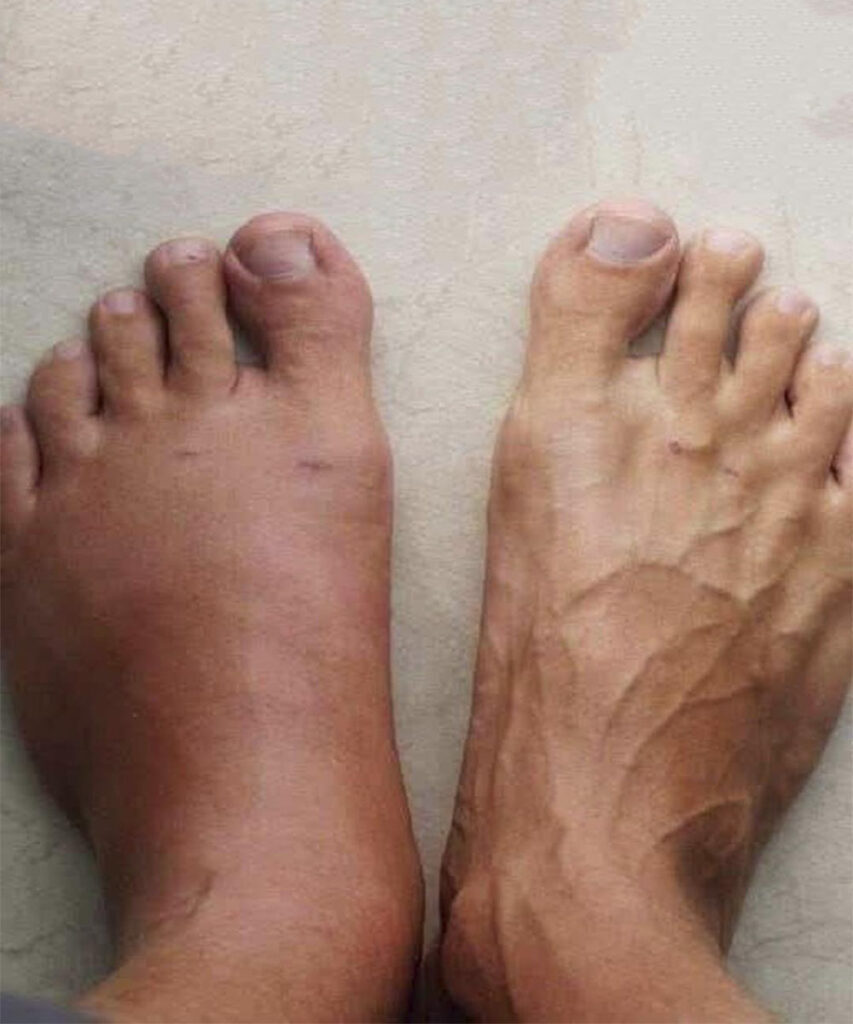
Swollen Feet: A Sign You Shouldn’t Ignore
Have you ever woken up and noticed one of your feet looking larger than usual, feeling heavy, tight, or uncomfortable in your shoes? While swollen feet can sometimes be harmless — maybe from standing too long, heat, or a minor injury — they can also signal that something more serious is happening in your body. Ignoring this sign could mean overlooking an important health issue.
Common Causes of Swollen Feet
1. Fluid Retention
When your body can’t eliminate excess water and salt properly, fluid often builds up in the lower legs and feet. Triggers can include:
Hot weather
A diet high in sodium
Kidney or liver problems
2. Poor Blood Circulation
When blood flow is restricted, it can pool in the feet and cause swelling. This often happens in people who sit or stand for long periods, or those with varicose veins.
3. Joint Problems
Conditions like arthritis or gout cause localized inflammation, often with pain and stiffness.
4. Injuries
Sprains, fractures, or even minor injuries naturally lead to swelling as part of the body’s healing process.
Red-Flag Symptoms to Watch For
While mild swelling may go away on its own, some symptoms mean it’s time to see a doctor right away:
Sudden swelling without a clear cause
Severe pain or heat in the swollen area
Skin that feels very tight or changes color
Swelling that lasts several days or keeps coming back
Trouble walking or putting weight on the foot
These may be signs of conditions like deep vein thrombosis (DVT), infection, or circulation problems that require urgent medical care.
What You Can Do at Home
For mild, occasional swelling:
Elevate your legs for 15–20 minutes to reduce fluid buildup.
Apply cold compresses to soothe discomfort.
Stay hydrated — drinking water helps your body flush out excess fluids.
Cut back on salt, which can make swelling worse.
Move regularly — a 30-minute walk each day improves circulation.
Wear comfortable shoes that don’t squeeze or restrict your feet.
Prevention Tips
Take short breaks if you sit or stand for long hours.
Stretch your legs often, especially on long flights or car rides.
Maintain a balanced diet rich in fruits, vegetables, and lean proteins.
Monitor any recurring swelling and discuss it with your healthcare provider.
Final Thoughts
Your feet might not always be the first place you think of when it comes to health, but they are powerful messengers. While swelling isn’t always serious, recurring or unexplained swelling can be your body’s way of saying something isn’t right. Paying attention — and seeking medical help when needed — can make all the difference.